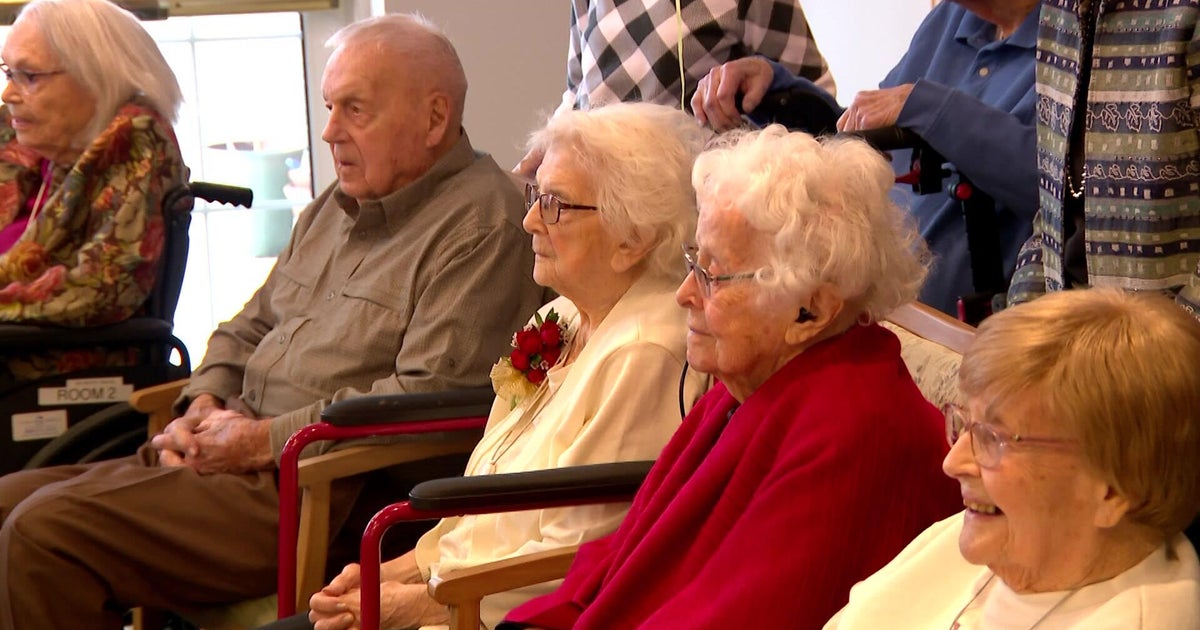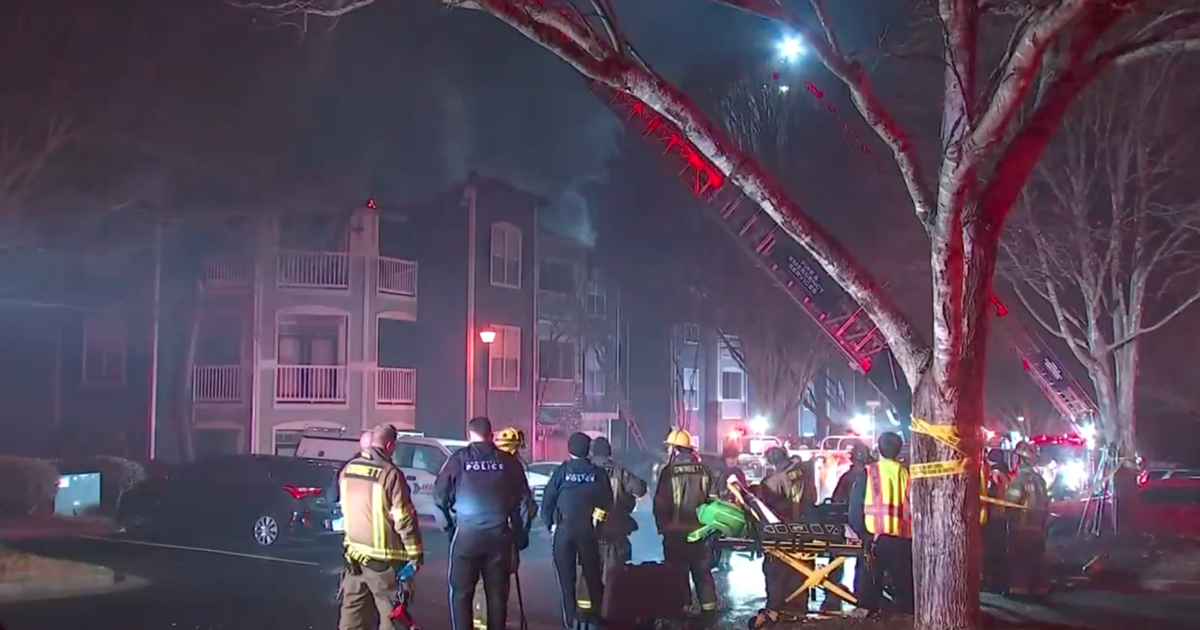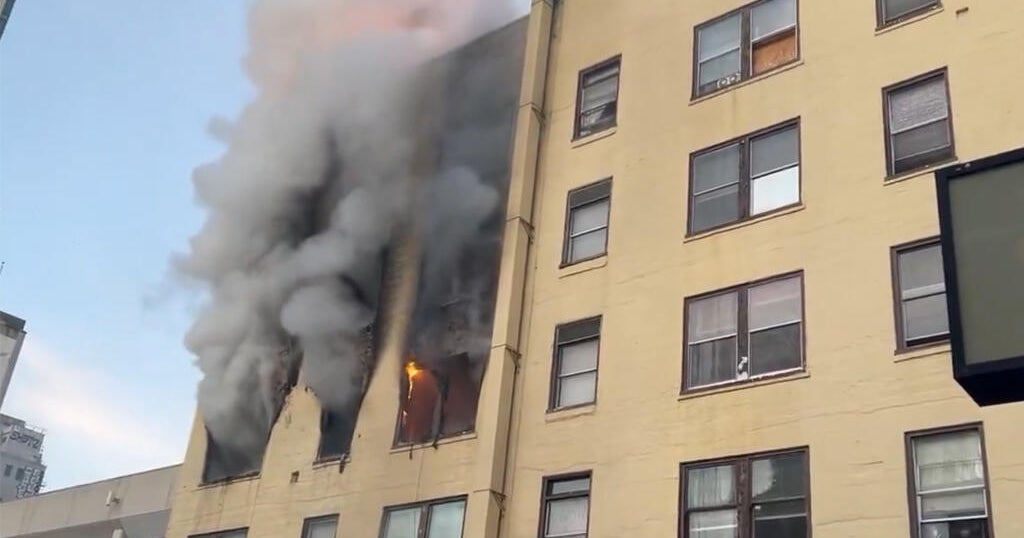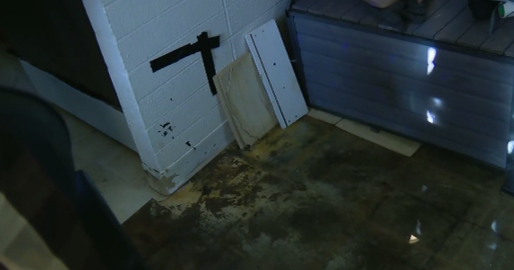2 Investigators: Assisted-Living Facility Neglected Resident, Suit Says
(CBS) -- For years assisted-living facilities have filled a gap for seniors who may need some help with daily living but do not yet require nursing home care.
But 2 Investigator Pam Zekman found that some assisted living facilities do not give residents the help they need and have violated state regulations requiring them to have sufficient staff and that they not keep residents who develop certain complex medical needs.
A tour of Sunrise Assisted Living in Willowbrook is impressive. Brochures detail the available care.
In 2010, it seemed a good fit for Marie-Rose Demkowicz, a multiple sclerosis patient who used a wheelchair. She had fallen in her home and broke a hip, prompting her family to look for an assisted-living facility with staff to help her.
Marie-Rose's son and daughter were impressed with the call buttons that Sunrise residents could wear around their neck to use when they needed to summon help.
"We needed someone there to assist her to use the bathroom," says Stefanie Lopez-Demkowicz, Marie-Rose's daughter.
But a pending lawsuit filed by the family charges Marie-Rose fell about 14 times at the Sunrise facility. The family says most of the falls happened after she used a call button to request help when she had to go the bathroom.
Stefanie says staff did not respond quickly, so Marie would wheel herself to the bathroom and then attempt to use the bathroom by herself.
"They would find her in the bathroom on the floor," the daughter says.
During one visit, Stefanie asked her mother to push the call button around her neck so she could test the response time for herself. "It was over 20 minutes before someone came in to help her out."
Marie-Rose's son Daniel said some staff would reset the call button after they did come so that records would reflect an acceptable response time. But they would tell his mother, "I'll be right back and it would be another 20 minutes."
Their lawsuit also charges that the assisted living facility failed to properly re-position and treat Marie-Rose to prevent bed sores. When Marie's children took her to an outside doctor for treatment, they say the assisted-living facility failed to follow the doctor's wound-care instructions.
As a result, the lawsuit charges Marie-Rose developed a Stage IV pressure sore that became infected, required surgical treatment and other procedures, "all of which caused or contributed to causing her death."
"What's shocking about this case," says Attorney Steve Levin, who filed the suit, "is that once they were Stage Three and Stage Four pressure ulcers, they kept her as a resident in direct violation of the law."
For seven months, Levin alleges, instead of transferring her to a nursing home for skilled care to treat the bedsore.
Why would they do that?
"They want to maintain census because that's how they make money," Levin says.
In Marie-Rose's case, that was more than $5,000 a month.
"The care that she needed, she wasn't getting. And that's what I thought we signed up for," Daniel Demkowicz says. "And it makes you angry."
In other settled lawsuits, other Sunrise facilities are also charged with negligence.
One charges that Sunrise in Gurnee left a patient on oxygen to breathe from an oxygen tank that was empty or turned off on "multiple occasions" over six weeks. She died of respiratory failure.
Another alleges a Sunrise patient in Flossmoor, suffered "unnecessary pain and suffering" when left "untreated" for a fractured shin bone for 48 hours and untreated for a fractured thigh bone for a "significant length of time."
There are 19 Sunrise facilities in the metropolitan area. CBS 2 learned that over the last two years, 10 have been cited with violating regulations enforced by the Illinois Department of Public Health.
The reports cite complications caused by untrained staff; unlicensed staff dispensing drugs; resident injuries including broken bones that were not reported to IDPH; and residents not getting needed care detailed in their service plans or not having their service plans updated when a resident's condition declined.
"There are good and bad assisted living facilities," says Debra Feldman, an advocate for geriatric patients who declined to comment on specific facilities. But she did say that families and friends need to become advocates for their loved ones, visit them and look for signs of problems.
"Are there behavior changes? Are they getting out to activities? Are they eating? Are they clean?" If problems are detected, they should report it to the nursing staff.
Sunrise had no comment on the allegations in the lawsuits or the violations found by state inspectors, which were corrected.
But Sunrise Senior Living offered this prepared statement:
"We take seriously our commitment to delivering seniors with high-quality care – we remain unwavering in our focus to provide our residents with a safe and nurturing home. Every Sunrise community team member receives ongoing training on resident care and safety. Sunrise's extensive training programs have been developed over our more than 30-year history in conjunction with state training requirements. We incorporate classroom, online and hands-on training, and employee shadowing and mentoring.
Our staffing model is based on the number of residents and their specific care needs. Care managers are designated to individual residents so that they truly get to know the residents' specific needs, and can recognize changes.If a resident's needs exceed what we are able to provide, we work with the resident, family and physician to find the right care solution.
We evaluate our teams' performance regularly to help ensure we meet our own high standards. Our residents and their families expect us to deliver the best care, as they should, and we work every day to earn their confidence and trust."
For a list of residents' rights for people at long-term care facilities, click here.
Click here to view the Illinois code governing operations at assisted-living facilities.







